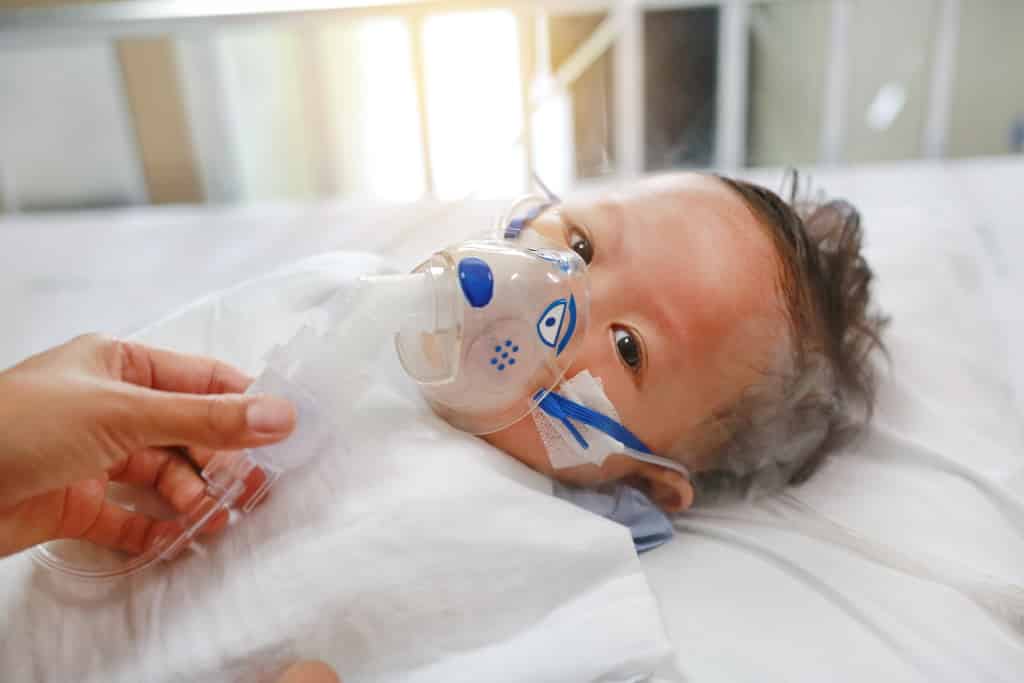Beyfortus, which is being developed jointly by Sanofi and AstraZeneca, is a step closer to preventing respiratory syncytial virus (RSV) lower respiratory tract disease in newborns and infants.
The European Medicines Agency’s Committee for Medicinal Products for Human Use (CHMP) has adopted a positive opinion for Beyfortus (nirsevimab) for the prevention of RSV lower respiratory tract disease in newborns and infants during their first RSV season. If approved, Beyfortus would be the first and only single-dose passive immunization for the broad infant population, including those born healthy, at term or preterm, or with specific health conditions.
Jean-François Toussaint, global head of research and development vaccines at Sanofi, said: “Today’s positive CHMP opinion is one of the most significant public health achievements in RSV in decades and has the potential to alleviate the enormous physical and emotional burden that RSV can place on families and healthcare systems. With this endorsement, we are one step closer to achieving our goal of protecting all infants against RSV with a single dose.”
Iskra Reic, executive vice president, vaccines and immune therapies at AstraZeneca, said: “This positive CHMP opinion underscores Beyfortus’ potential as a ground-breaking, first-in-class passive immunization that could transform the medical community’s approach to RSV prevention in infants.”
Based on trial results
The CHMP based its positive opinion on results from the Beyfortus clinical development program, including the phase 3 MELODY, phase 2/3 MEDLEY, and phase 2b trials. In the MELODY and phase 2b trials, Beyfortus met its primary endpoint of reducing the incidence of medically attended lower respiratory tract infections (LRTI) caused by RSV during the RSV season versus placebo with a single dose. The safety profile of Beyfortus was similar to placebo. Beyfortus also demonstrated a comparable safety and tolerability profile to palivizumab in the phase 2/3 MEDLEY trial.
RSV is the most common cause of LRTIs and a leading cause of hospitalization in all infants, with most hospitalizations occurring in infants born healthy and at term.
Currently there is no preventative option available for all infants and treatment is limited to symptomatic relief.
About Beyfortus
Beyfortus (nirsevimab) is an investigational long-acting antibody designed for all infants for protection against RSV disease from birth through their first RSV season with a single dose.
Beyfortus has been developed to offer newborns and infants direct RSV protection via an antibody to help prevent LRTI caused by RSV. Monoclonal antibodies do not require the activation of the immune system to help offer timely, rapid and direct protection against disease.
In March 2017, Sanofi and AstraZeneca announced an agreement to develop and commercialize Beyfortus. Under the terms of the agreement, AstraZeneca leads all development and manufacturing activities and Sanofi will lead commercialization activities and record revenues.
Under the terms of the global agreement, Sanofi made an upfront payment of €120m ($120 million), has paid a development milestone of €30m ($30 million) and will pay up to a further €465m ($464 million) upon achievement of certain development and sales-related milestones. The two companies share all costs and profits.
Beyfortus has been granted designations to facilitate expedited development by several major regulatory agencies around the world. These include Breakthrough Therapy Designation by The China Center for Drug Evaluation under the National Medical Products Administration; Breakthrough Therapy Designation from the US Food and Drug Administration; access granted to the European Medicines Agency (EMA) PRIority MEdicines scheme; Promising Innovative Medicine designation by the UK Medicines and Healthcare products Regulatory Agency; and named “a medicine for prioritized development” under the Project for Drug Selection to Promote New Drug Development in Pediatrics by the Japan Agency for Medical Research and Development (AMED).
The safety and efficacy of Beyfortus was evaluated under an accelerated assessment procedure by the EMA. Beyfortus has not been approved by any regulatory authority.
About RSV
RSV is the most common cause of LRTI, including bronchiolitis and pneumonia, in infants. It is also a leading cause of hospitalization in all infants, with most hospitalizations for RSV occurring in healthy infants born at term. Globally, in 2019, there were approximately 33 million cases of acute lower respiratory infections leading to more than three million hospitalizations, and it was estimated that there were 26,300 in-hospital deaths of children younger than five years.





